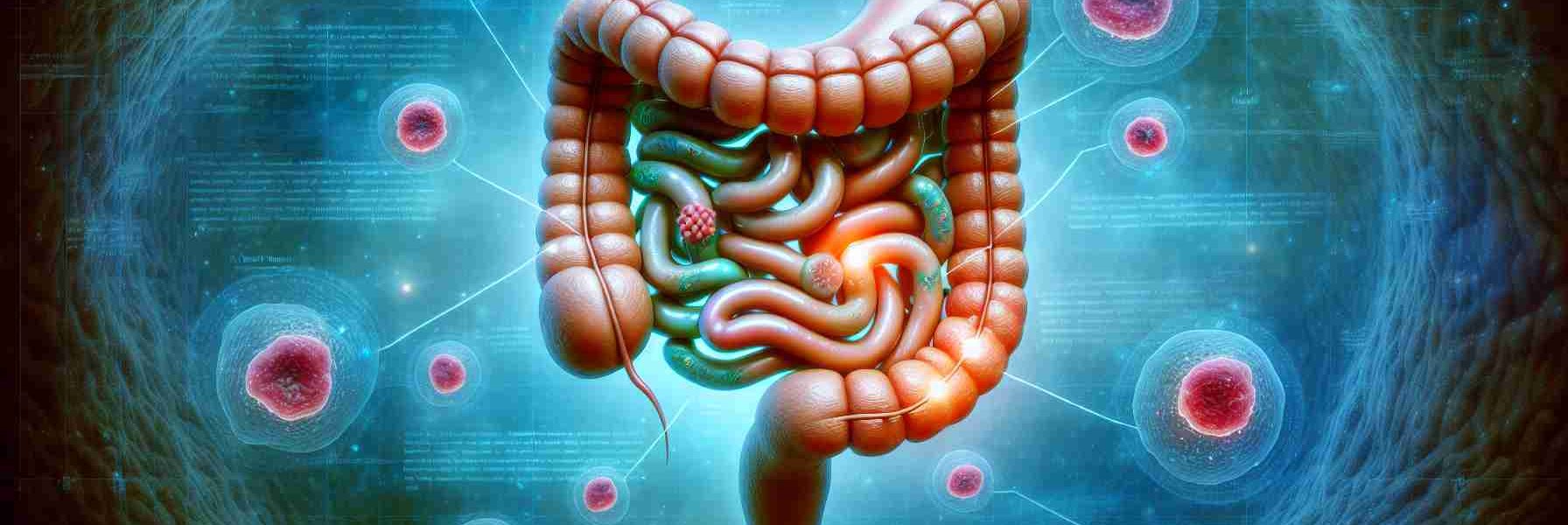A groundbreaking study conducted by researchers from The Hospital for Sick Children (SickKids) and the Institut Curie highlights how stem cells perceive and adapt to their environments, which has significant implications for understanding inflammatory bowel disease (IBD) and colorectal cancer. Stem cells continuously interact with their surroundings, influenced by various chemical signals and physical attributes. The failure of stem cells to respond correctly can lead to serious health issues, including the formation of tumors in conditions like colorectal cancer.
Recent research published in Science, led by Dr. Meryem Baghdadi and her colleagues, has uncovered key mechanisms by which stem cells rely on two specific ion channels, known as PIEZO1 and PIEZO2, for their survival and functionality. The research indicates that these channels are essential for stem cells to detect the physical properties of their environment, thus maintaining their roles effectively. When the research team deactivated the PIEZO channels in intestinal stem cells, the findings revealed a dramatic decline in the cells’ ability to function, resulting in severe health complications.
This study not only sheds light on the pivotal role that these ion channels play but also suggests new avenues for promoting gastrointestinal health and regeneration. Scientists believe that understanding how stem cells react to their environment could lead to breakthroughs in treating various conditions linked to abnormal stem cell activity, thus improving the overall approach to human health.
New Insights into Stem Cell Behavior May Transform Understanding of Gut Health
Recent advancements in stem cell research have revealed complex behaviors and regulatory mechanisms that could significantly alter our understanding of gut health and associated diseases. The emerging field of “stem cell niche” research highlights the intricate relationship between stem cells and their microenvironment, offering promising avenues for therapeutic interventions in gastrointestinal disorders like inflammatory bowel disease (IBD) and colorectal cancer.
Key Questions Addressed
1. **What are the specific roles of the gut stem cell niche?**
The gut stem cell niche comprises various cell types, including support cells, which provide essential signals to guide stem cell behavior. Recent studies emphasize that these interactions are not merely supportive but are active participants in regulating stem cell proliferation and differentiation.
2. **How do environmental factors influence stem cell fate?**
Evidence suggests that factors such as diet, gut microbiota, and inflammation significantly affect the behavior of gut stem cells. For example, the presence of certain microbes can bolster the regenerative capabilities of these cells, while high-fat diets may impair their function.
Key Challenges and Controversies
One of the major challenges in stem cell research is the ethical implications of manipulating stem cells for therapeutic purposes. As researchers explore ways to induce stem cells to heal or regenerate damaged tissues, concerns arise regarding potential long-term effects and the risks of tumorigenesis. Furthermore, the intricate balance of the gut ecosystem presents another hurdle; disrupting the gut microbiota, even with good intentions, could have unforeseen consequences for overall health.
Advantages and Disadvantages
– **Advantages**:
– Enhanced understanding of stem cell biology could lead to novel treatments for gut-related diseases.
– Targeting specific pathways in stem cells may offer more precise and less invasive intervention options compared to traditional therapies.
– The potential for regenerative therapies may improve outcomes for patients with chronic intestinal disorders.
– **Disadvantages**:
– Manipulating stem cell behavior could lead to unintended consequences, such as increased cancer risk.
– The complexity of gut microbiota means targeted therapies could disrupt beneficial bacterial populations, leading to dysbiosis.
– The high variability in individual responses to treatments necessitates personalized approaches, complicating widespread implementation.
In addition, the role of inflammation in stem cell behavior has garnered attention. Chronic inflammation may alter the signaling pathways that stem cells rely upon, contributing to the dysregulation seen in conditions like IBD. Researchers are now exploring whether anti-inflammatory therapies could reset the stem cell niche and restore normal function.
Conclusion
The implications of recent research into stem cell behavior in the gut are profound, potentially reshaping our approaches to understanding and treating gastrointestinal diseases. As the scientific community continues to uncover the intricate interplay between stem cells and their environment, the promise of new therapeutic strategies grows more tangible.
For more information on gut health and stem cell research, visit NIH and NCBI.




